The World Health Organization (WHO) announced the official name for the disease currently causing the 2019 novel coronavirus outbreak as COVID-19. Coronaviruses commonly circulating in humans have previously only caused mild illnesses, "like the common cold," according to the U.S. Centers for Disease Control and Prevention (CDC). At present, no vaccine or specific treatment for the 2019 coronavirus outbreak exists. The CDC says that COVID-19 is believed to be spread primarily "...from person to person, mainly through respiratory droplets produced when an infected person coughs or sneezes. These droplets can land in the mouths or noses of people who are nearby or possibly be inhaled into the lungs."
But is COVID-19 a compensable occupational disease?
Occupational Diseases
The Ohio workers' compensation law recognizes "occupational diseases" as allowable and compensable conditions when they arise from employment activity [Ohio Revised Code 4123.01(F)]. The legal requirement is that the occupational disease contracted through employment has characteristics and "causes" that develop from a hazard that is different in character from employment generally, and the employment creates a risk of contracting the disease in a greater degree or manner than the public in general.
This legal jargon is best exemplified in jobs where occupational diseases are obvious. For instance:
- A worker who cuts or crushes rocks all day should easily be able to prove his or her diagnosis of silicosis from the silica dust in the rock and sand;
- A coal miner who works in a mine should easily be able to prove black lung disease (pneumoconiosis) from the coal dust;
- Someone who works in manufacturing, milling, or installation and/or removal of asbestos products should be able to prove a diagnosis of asbestosis as job-related.
In each of these jobs, the employee contracts the condition because of the hazard of his or her employment, where the employment created a higher risk to the employee than to the public generally.
In these examples, and in any Ohio workers' compensation claim, the employee bears the burden of proving "to a reasonable degree of medical probability" that he or she contracted the occupational disease as a result of employment activity. This is a heavy burden. A physician will have to provide an opinion that the employee contracted the occupational disease as a result of the employment.
Legal Presumption
Ohio law has created a "presumption" for police officers and firefighters who develop "cardiovascular, pulmonary, or respiratory diseases" following "exposure to heat, smoke, toxic gases, chemical fumes, and other toxic substances" [Ohio Revised Code 4123.68(W)].
The phrase "other toxic substances" should include exposure to COVID-19. The term "toxic" refers to, or relates to, "toxins." The Merriam-Webster Dictionary defines a toxin as "a poisonous substance that is a specific product of the metabolic activities of a living organism and is usually very unstable, notably toxic when introduced into the tissues, and typically capable of inducing antibody formation."
Therefore, an argument can be made that police officers and firefighters in Ohio developing COVID-19, or the families of firefighters and police officers who die due to COVID-19, have the benefit of the legal presumption that this condition was contracted in the course and scope of their employment.
A presumption can be rebutted, however, when the Ohio Bureau of Workers' Compensation or the employer presents "affirmative evidence" of another cause for the development of the condition. The burden of proof then shifts back to the injured worker (or surviving dependent) to prove a causal relationship of the disease (or death) to the employment.
Because of the recency of COVID-19 in the U.S. and Ohio, the Law Office of Charles Zamora Co., L.P.A. is not aware of Ohio workers' compensation claims being approved for COVID-19 disease or death claims as of the date of this writing (4/6/2020).
Other COVID-19-Related Injuries
Many employees in Ohio have found themselves characterized by the government as "essential" workers, meaning they are allowed to continue to work during the coronavirus pandemic. For some, this means added duties and longer hours of work. Healthcare workers are on the frontline, as are many private businesses struggling to keep up with consumer demand. Delivery workers, warehouse workers, grocery store employees, truck drivers, and a host of other occupations are working overtime.
A rise in work-related injuries can be expected from essential employees either being over-worked or from being injured due to tired or distracted co-workers. Employees who get injured should still report their injuries to their employers and try to see their doctor as soon as the injury occurs. Many doctors are holding virtual medical examinations or medical appointments by telephone. Injured workers should seek medical attention as close to the injury date as possible.
No-Fault System
Some injuries may occur because the employer was somehow at fault. Perhaps not providing adequate personal protective equipment, or having to work too many hours during a day or week, may have contributed to the employee getting injured. Normally, the Ohio workers' compensation program is characterized as "no-fault." This just means that either an employer or an employee may be at fault for the injury, but the workers' compensation claim is still compensable.
However, if the employer's conduct rises to "intentional" conduct, meaning the employer intended for the employee to get injured, or the employer knew with substantial certainty that the employee would get injured if the employer made him or her work under certain conditions that the employee would get injured and made him or her work anyway under those conditions, then the employee may have a valid basis to pursue an employer intentional tort lawsuit. An intentional tort lawsuit is a separate action and would be independent of the workers' compensation claim.
Get Skilled Legal Guidance from the Law Office of Charles Zamora Co., L.P.A.
If you or a loved one suffered injury, illness, or death from complications related to COVID-19 or because of working conditions resulting from the disease, reach out to our team to discuss your case. We'll review your circumstances and help determine whether or not you can pursue a claim.
Schedule your free consultation by calling Charles Zamora Co., L.P.A. at (614) 344-6822 or contacting us online.


